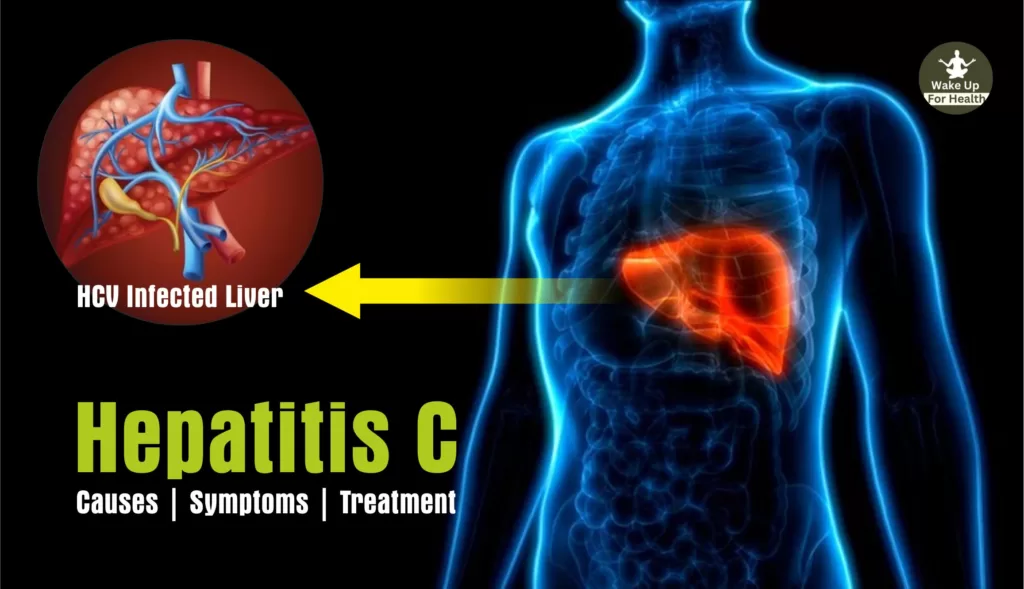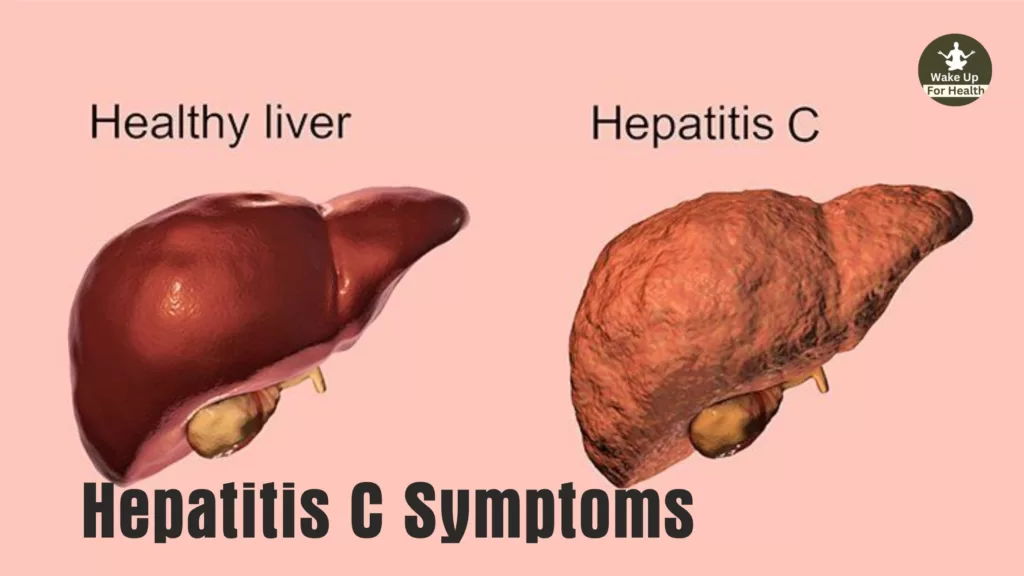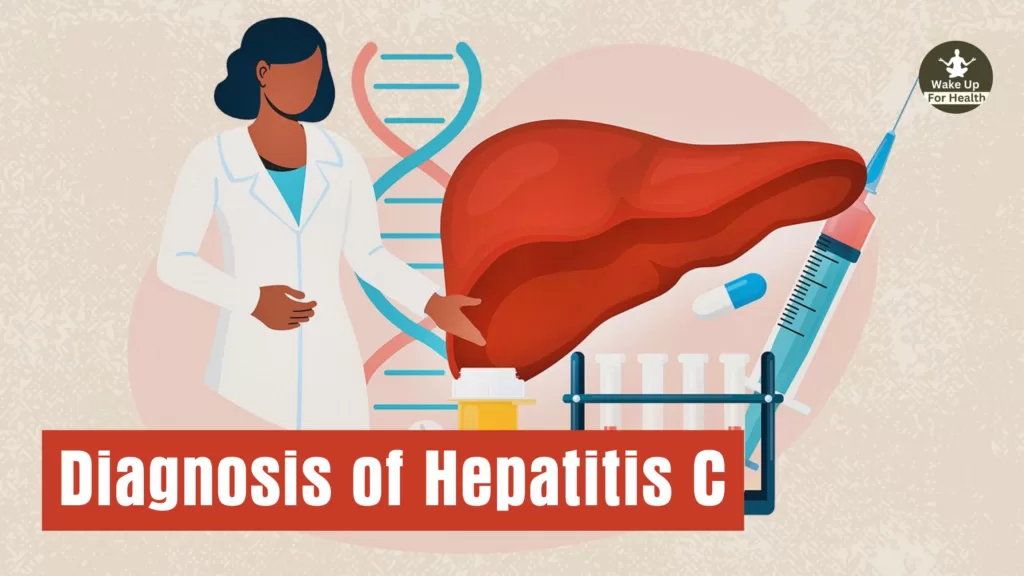- Hepatitis C is spread mostly through blood-to-blood contact and mainly through the use of injectable drugs.
- Various vaccinations are currently available for diseases such as hepatitis A and B, but no vaccine is available for Hepatitis C.
Hepatitis C is a type of infectious and viral disease that affects the liver. It is also known colloquially as black jaundice. It is one of the most common blood-borne diseases in India, and most importantly, most people with Hepatitis C are not aware that they have a contagious disease like Hepatitis C, the consequences of which can be very serious and dire.
The disease is spread mostly through blood-to-blood contact and mainly through the use of injectable drugs. Various vaccinations are currently available for diseases such as hepatitis A and B, but no vaccine is available for Hepatitis C. Infection with HCV can cause Black Jaundice, scarring, cirrhosis, Serious diseases such as liver cancer can occur and in some cases HCV can even lead to death. However, there are some medications available that can cure chronic hepatitis C infection.
Today in this article, we will know what is Hepatitis C, its symptoms, causes, diagnosis, treatment and prevention.

What is Hepatitis C?
An instance of liver inflammation brought on by the HCV virus is Hepatitis C. Sometimes Hepatitis C can cause serious liver damage. There are different types of viral hepatitis C, with the most common types being Hepatitis A, B, and C. This virus attacks the cells in the liver and causes liver inflammation and dysfunction.
What are the Causes, Treatment Approaches for Hepatitis C?
The most common cause of Hepatitis C is the HCV Virus. The HCV virus is spread through blood-to-blood contact.
These viruses are inactive until they enter the living cell of a host. The virus then hijacks the cell’s hardware to make copies of itself. In chronic Hepatitis C infection, millions or even billions of copies of the HCV virus circulate within the body. Because of which this infection makes the body seriously ill.
For blood-to-blood transmission to occur, the blood of an infected person must enter the body of a person who is already healthy. The biggest risk factor for becoming infected with HCV is the needles or equipment used to inject drugs. This virus is so microscopic in the blood of an infected person and spreads so rapidly that even washing the needles or equipment used by the infected person with alcohol, water or soap cannot reduce the infection of the HCV virus.
HCV infection is not spread by casual contact, sharing food, hugging or mosquito bites.
Must Also Know About : How to Get Rid of Fatty Liver?
What are the Symptoms for Hepatitis C?
Symptoms of Hepatitis C appear in two ways, one is acute and the other is chronic, the symptoms of this infection depend on these two types only.

1. Acute Hepatitis C Symptoms
Symptoms of acute hepatitis C can be very difficult to detect because there are no symptoms of this infection early, hence it is also called silent epidemic. Its possible symptoms can be detected within 4-15 weeks if some symptoms are noticed, some of its symptoms include-
- Stomach discomfort
- Nausea and nervousness
- Fever
- Joint pain
- Feeling tired
- Black jaundice (but it is very unlikely to occur)
- Passing gray colored stools (this is also very less likely to happen) etc.
All these symptoms can be of acute hepatitis C, because even if you have any other viral syndrome, the symptoms of this infection do not change, so if you feel any of these symptoms, contact your doctor immediately and get this infection checked.
2. Chronic Hepatitis C Symptoms
Hepatitis C infection becomes chronic if it remains undetected even after an acute infection and the virus remains in the blood for six months. The presence of the HCV virus can be detected by at least two tests to rule out chronic infection, and if the test shows that the infection is chronic, then resolution of chronic hepatitis C infection without drugs Impossible.
Most people do not have any symptoms with this infection. Therefore, most of the infected person experiences the common symptoms of abdominal pain, persistent fatigue and joint pain, which they consider normal.
After 25 to 30 years, this type of infection can result in scarring, or fibrosis, of the liver, and if the infection causes total liver scarring or damage, If this happens, it can cause serious problems like cirrhosis, liver failure and mainly liver cancer.
Must Know About : What is Liver Cirrhosis?
How to Diagnose Hepatitis C?
1. Screening or blood test
Most doctors recommend that you have a simple blood test to check for this infection if you have been exposed to the hepatitis C virus.

2. Other Blood Tests
If the initial blood test shows that you have this infection, you will need additional blood tests, such as:
A. Viral Load Test– In this type of test, the doctor measures the amount of hepatitis C virus in your blood.
B. Genotype Test – Genotype test identifies the genotype of Hepatitis C virus.
C. Testing for Liver Damage – Doctors use the following tests to check for liver damage caused by this infection, such as –
1. Magnetic Resonance Elastography (MRE)
In an MRE test, sound waves are combined with magnetic waves to produce a pattern of different maps of the liver that show gradients of stiffness across the liver. Chronic liver tissue reveals that thisinfection has resulted in fibrosis or scarring of the liver.
2. Transient Elastography
Transient elastography is a type of ultrasound that produces vibrations in the liver and measures the speed of their propagation through liver tissue to estimate liver stiffness.
3. Liver Biopsy
In this test, a small sample of liver tissue is removed by inserting a thin needle through the abdominal wall, which is sent for laboratory testing. All these types of tests can check for this infections and take a proper treatment.
Risk Factors
The Centers for Disease Control (CDC) have identified some of the main risk factors for the hepatitis C virus, including:
- Individuals born between 1945 and 1965
- Had undergone transfusion or organ transplant before 1992.
- Have used injectable drugs.
- Suffering from hemophilia.
- Hemo-dialysis has been done for a long time.
- Being exposed to needle sticks, especially for people in healthcare.
- Be an HIV positive person.
- Tattooing by irregular setting.
- Engaging in risky sexual behavior, such as having unprotected sex with an intravenous drug user.
- A baby born to a mother who has HCV.
- Consumption of alcohol for a long time.
- Any type of liver disease.
Ignoring all these risk factors can put you at risk of infection with Hepatitis C virus which can cause many serious liver diseases and can be fatal.
Complications
If hepatitis C infection continues for a long time, it can also cause other serious complications, such as-
1. Scarring on the Liver (Cirrhosis)
If the duration of this infection is up to 20-30 years then you may have cirrhosis due to this infection. When cirrhosis develops, your liver is unable to function properly.
2. Liver Cancer
Liver cancer can also occur in some people
3. Liver Failure
If the infection of cirrhosis reaches a high level, then there may be a problem of liver failure in which the liver stops working completely.
Treatment For Hepatitis C
This infection can be treated in a variety of ways to give you relief from pain and discomfort. Some of the treatments are as follows-
1. Treatment by Antiviral Drugs
This infection can be treated with antiviral drugs. The aim of treatment for this infection is to clear the virus from your body. The goal of treating hepatitis C with antiviral medications is to clear your body of hepatitis C virus infection after at least 12 weeks.
Researchers have recently made significant advances in the treatment of this infection, including the use of anti-viral drugs in addition to existing medications, which has resulted in people getting better results from antiviral drugs. And its side effects are also less and it is also providing relief and the best thing is that its duration is only 8 weeks.
But for antiviral drug treatment, it is important to check the mode of administration and length of treatment as well as hepatitis C genotype, existing liver damage status, other medical conditions and prior treatment as subsequent treatment depends on it.
2. Treatment by Liver Transplant
If your infection has reached the chronic level, then the doctor may also recommend liver transplant, because in today’s time liver transplant is also a very good option to cure this infection.
In the process of liver transplant, the new healthy liver is removed by removing the bad liver, mostly the new liver is taken from dead people, but some living people are also ready to give some part of their liver. In this way, chronic hepatitis C infection can be reduced by liver transplant.
But also know that it is not necessary that this infection does not come back after liver transplant, the possibility of this infection coming back can still remain, so antiviral medicines should be used to prevent hepatitis C infection from coming back. It is necessary to take good care of the new liver by taking support.
Research has shown that these antiviral drugs are effective in treating post-transplant hepatitis C, and some people have also benefited from taking antiviral drugs before a liver transplant.
3. Vaccination for the Treatment
By the way, there is no vaccine available for hepatitis C infection, so doctors recommend getting hepatitis A and hepatitis B vaccinations to prevent hepatitis C, because with these two vaccinations, you can reduce the chances of this infection symptoms to some extent. can be reduced.
Home Remedies
You can reduce hepatitis C infection to some extent by making some changes in your lifestyle and adopting some home remedies and stay healthy, there are some home remedies to avoid this infection-
1. Do not Consume Alcohol
If you want to avoid this infection, then there is only one best home remedy to prevent this infection, you should stop consuming alcohol because drinking alcohol accelerates the infection of liver disease. comes and the liver deteriorates quickly.
2. Avoid Medicines that Harm the Liver
This is also a good home remedy to avoid hepatitis C infection, talk to your doctor before taking any medicines because some over the counter medicines and herbal and Diet supplement can harm your liver which doctor can consider to take.
3. Protect others with No Contact with Your Blood
If you are infected with the Hepatitis C virus, do not share your toothbrush and razor with anyone and always cover any cuts you have. Before donating blood and before donating any organ, tell the doctor that you have hepatitis C infection.
Always use a condom before having sex with your partner. By adopting all these home remedies, you can save and protect yourself and the people around you from hepatitis C infection.
Prevention for Hepatitis C
For the prevention of hepatitis C virus infection, it is most important to limit the means of spreading the HCV virus because the hepatitis C virus is most commonly spread through blood to blood, so avoid sharing needles applied to each other and avoid sharing any needles.
Do not transfuse the blood of a person infected with Hepatitis C to a healthy person.
If you are infected with Hepatitis C virus, consult your doctor and get Hepatitis A and Hepatitis B vaccine, which can prevent the infection arising in the liver, along with this you can make yourself healthy by changing your lifestyle and can keep away from infection.
Disclaimer : The article’s sole purpose is to wake you up for your health and to provide you the best collective and verified information. We do not recommend for any kind of medicine or treatment. You should only seek to your Doctor or Medical Counselor Because there is no one better than him.